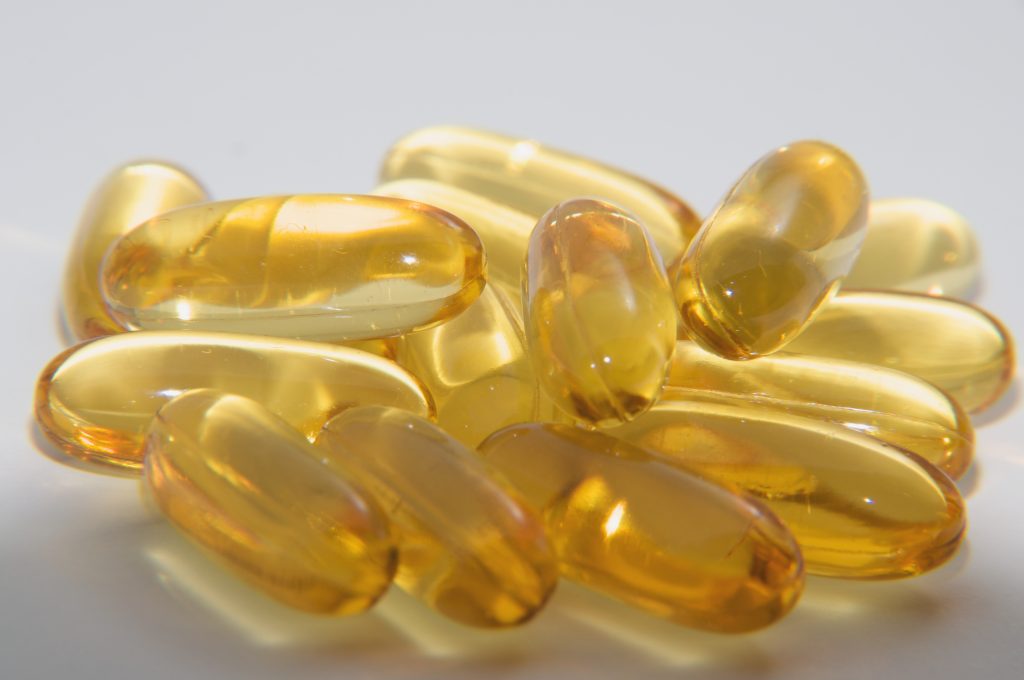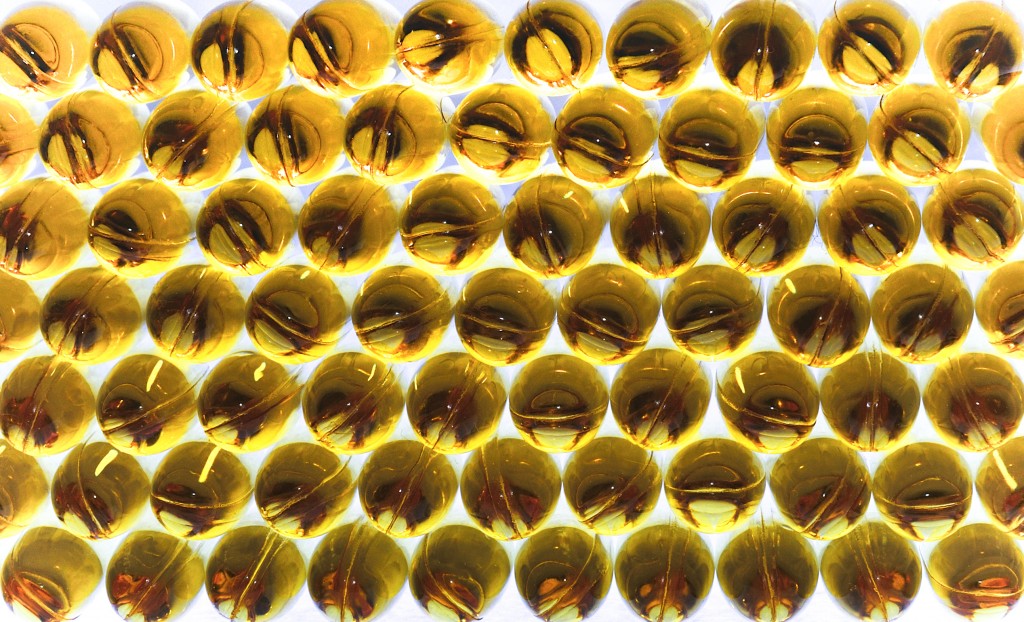
The Latest News on Healthful Fats (Omega-3) to Improve Your Heart Health
Photo Credit: Nikodemus Karlsson, vial Flickr Creative Commons
The evidence for supplementing with omega-3 fatty acids to improve your heart health just got stronger. A January 2017 overview published in the Mayo Clinic Proceedings Journal looked at research going back to 1947. In one group of studies, the research team, including members of the American College of Cardiology and the American Heart Association Task Force, found that people who took more omega-3 could cut their risk of heart disease by up to 18 percent.
Unlike saturated fats in foods like meat and dairy, omega-3 fats are essential to our health
In another group of studies, people with triglycerides above 150 mg/dL cut their risk by 16 percent and those with low-density lipo-protein (LDL) cholesterol (the “bad” kind that contributes to plaque) above 130 mg/dL cut their risk by 14 percent.
The team of researchers also put together the results of 18 random controlled trials, the gold-star type of study. They reported that these healthful fats also may protect us from a range of diseases associated with modern life and aging: Alzheimer’s disease, depression, rheumatoid arthritis, macular degeneration and the polyps linked to colon cancer. They are truly essential oils!
This conclusion matches findings over the last decade that higher levels of these fatty acids improve heart health. For example, a 2016 review published in JAMA pooled 19 cohort studies showing that omega-3s fatty acids helped to contribute to a lower incidence of fatal CHD.
For more information on omega-3s and the link with heart disease see our Ornish Living article The Latest Science on Omega 3 on Health and Longevity.
Essential Oils
Omega-3s are oils in the sense that they are polyunsaturated, the kind of fat that is liquid at room temperature, and plentiful in nuts and seeds as well as in fish. Our bodies can synthesize most of the fats we need, but not omega-3s, so we must obtain them either from food or supplements.
Unlike saturated fats in foods like meat and dairy and commercial trans-fats, omega-3 fats are built into the very structure of our bodies, and are therefore essential to our health and well-being. They are part of our cell membranes and help us make the hormones that regulate blood clotting, contraction and relaxation of the artery walls, and inflammation.
Don’t Rely on Fish
You may hear recommendations from doctors, and even from the American Heart Association, to eat more fish to get your heart healthy omega-3s. In Ornish Lifestyle Medicine, however, we don’t recommend eating fish to increase your omega-3 levels and improve your overall health. For one reason, you would have to eat far too much. Depending on the kind of salmon, for example, you’d have to eat as many as 24 ounces a day to reach the 2-5 grams of omega-3 we recommend.
Besides getting tired of eating salmon or mackerel, you would be exposing yourself to mercury, PCBs, chlordane, dioxins and DDT. Mercury is the biggest problem; it accumulates in mud and contaminates fish in many freshwater lakes and rivers as well as in coastal waters. Many states measure the level of contamination in local water and issue advisories for vulnerable groups, like children and pregnant women, or for the general population. For more information, see the data available from the Environmental Protection Agency.
Fish is dangerous for other reasons as well. Six ounces of salmon contains over 100 mg of cholesterol—the villain behind plaque. In Ornish Lifestyle Medicine, we recommend 10 mg of cholesterol or less a day. L-carnitine, also present in fish, is converted by gut bacteria to TMAO (trimethylamine-N-oxide), and ends up in the liver. Elevated TMAO levels have been shown to increase the risk for heart and kidney disease.
Pick Your Supplement
Most of the time you can get your daily dose of omega-3 from a whole food, plant-based diet, but there are times when you need a supplement, perhaps because you have limited choices of food. (See Ornish Living article, The Importance of Sunshine for Your Heart) We recommend a cholesterol-free fish oil supplement, purified to remove mercury, dioxins, polychlorinated biphenyls (PCBs) and other toxins. Even better, choose a vegan supplement, made from plants and therefore naturally cholesterol-free while still rich in omega 3 EPA and DHA. Look for products labeled “USP Verified,” which meet stringent requirements for purity and potency. (For more information see our Ornish Living article Omega- 3s: Not all Fats are not Created Equal.)
Always check with your physician before taking or changing any supplement. Fish oil, for example, may have a thinning effect on your blood so anyone taking a blood thinner –Warfarin is the most common—should keep their doctors well-informed.
Consider Testing
People vary in how well they can absorb and metabolize omega-3 fatty acids. You might consult with your doctor and have your blood levels checked before you take supplements to establish a baseline and then regularly follow-up to see how well your supplements are working.
Are you getting your daily dose of omega-3?







